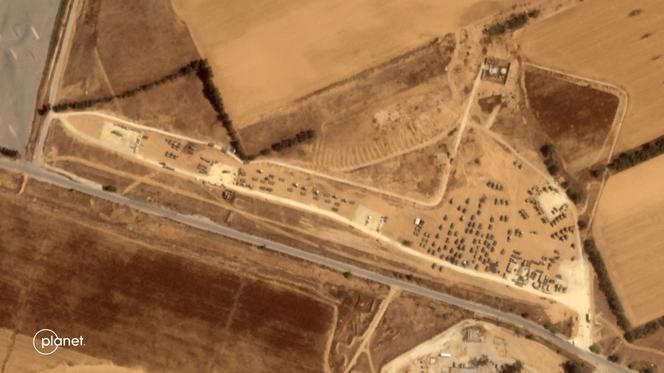


Since Israel took control of the Rafah border crossing between Gaza and Egypt on May 7, the army has been blocking most humanitarian aid entering Gaza. The Israeli army claims that it has reopened the nearby Kerem Shalom border crossing on its own territory and that trucks have been passing through, but has not disclosed how many.
The World Food Program (WFP) has complained that it no longer has access to the main hangar in which it had stored food before distributing it elsewhere in Gaza. "It's crazy. [The Israelis] have tanks all over the place, they have troops on the ground, they are bombarding the area east of Rafah and they want us to go out and pick up the fuel or commodities?" said the head of the UN Office for the Coordination of Humanitarian Affairs in the Occupied Palestinian Territory, Andrea De Domenico.
Humanitarian organizations are rationing their gas and fear that they will run out of it in the next few days. This would stop their electric generators, including those in health centers. "The situation is disastrous," warned UNICEF Executive Director Catherine Russell, who stated that if fuel was not allowed in, "incubators for premature babies will no longer have power, children and families will be dehydrated or will drink non-potable water, and sewers will overflow, spreading disease."
Israeli soldiers remain stationed at the border post on the eastern outskirts of Rafah at the end of the long Salah al-Din Road, which runs through the city. Rafah, where a million Palestinians displaced by the fighting have been squeezed together, still has four Hamas brigades, which have started to harass the Israeli soldiers.
This dynamic on the ground has raised fears of an extension of the Israeli operation, as the army cannot be content to remain static at the border post. Satellite images show that the army has spread out up to a kilometer from there, razing buildings and stationing tanks. Troops are destroying tunnel entrances and shelling the surrounding area, while air strikes on the town continue in the distance, as they have for several months.
According to the United Nations, the threat forced some 80,000 Palestinians to flee further north on Thursday via either the dangerous Salah al-Din Road or the coastal route. The army, which is seeking to empty Rafah of part of its population in order to continue its advance, has announced a much higher number of evacuees: 150,000.
The UN, which had built up a relatively solid humanitarian operation in Rafah over the months, has pointed out that basic public health structures – access to water, shelter, latrines – are woefully inadequate elsewhere. The WFP has already readied a food warehouse in Deir al-Balah (center), but it remains empty. Humanitarians fear that all of Rafah's medical facilities will soon be inaccessible or out of service: Al-Najjar Hospital, one of the three remaining hospitals open in Rafah, was already evacuated on May 7. It was the last hospital in Gaza still able to provide dialysis for kidney patients.
You have 29.18% of this article left to read. The rest is for subscribers only.
